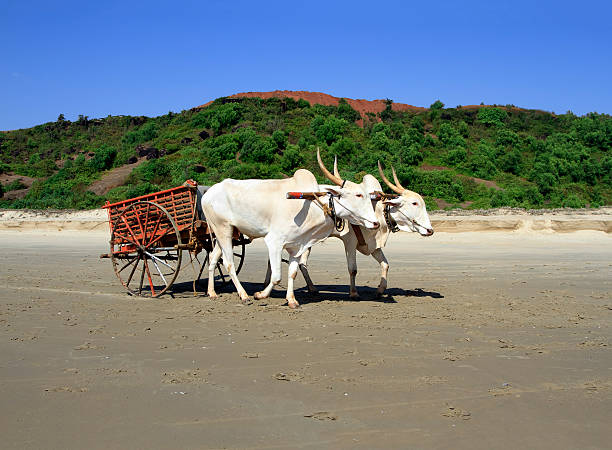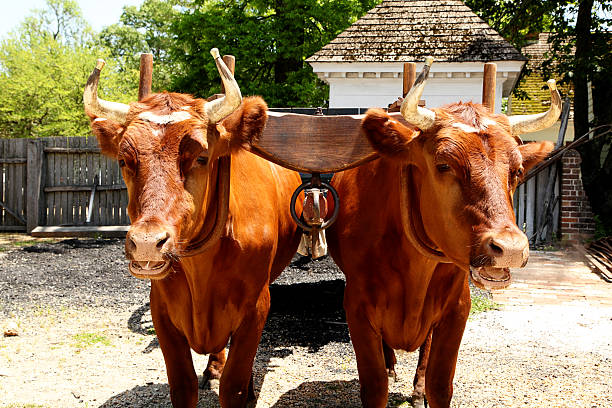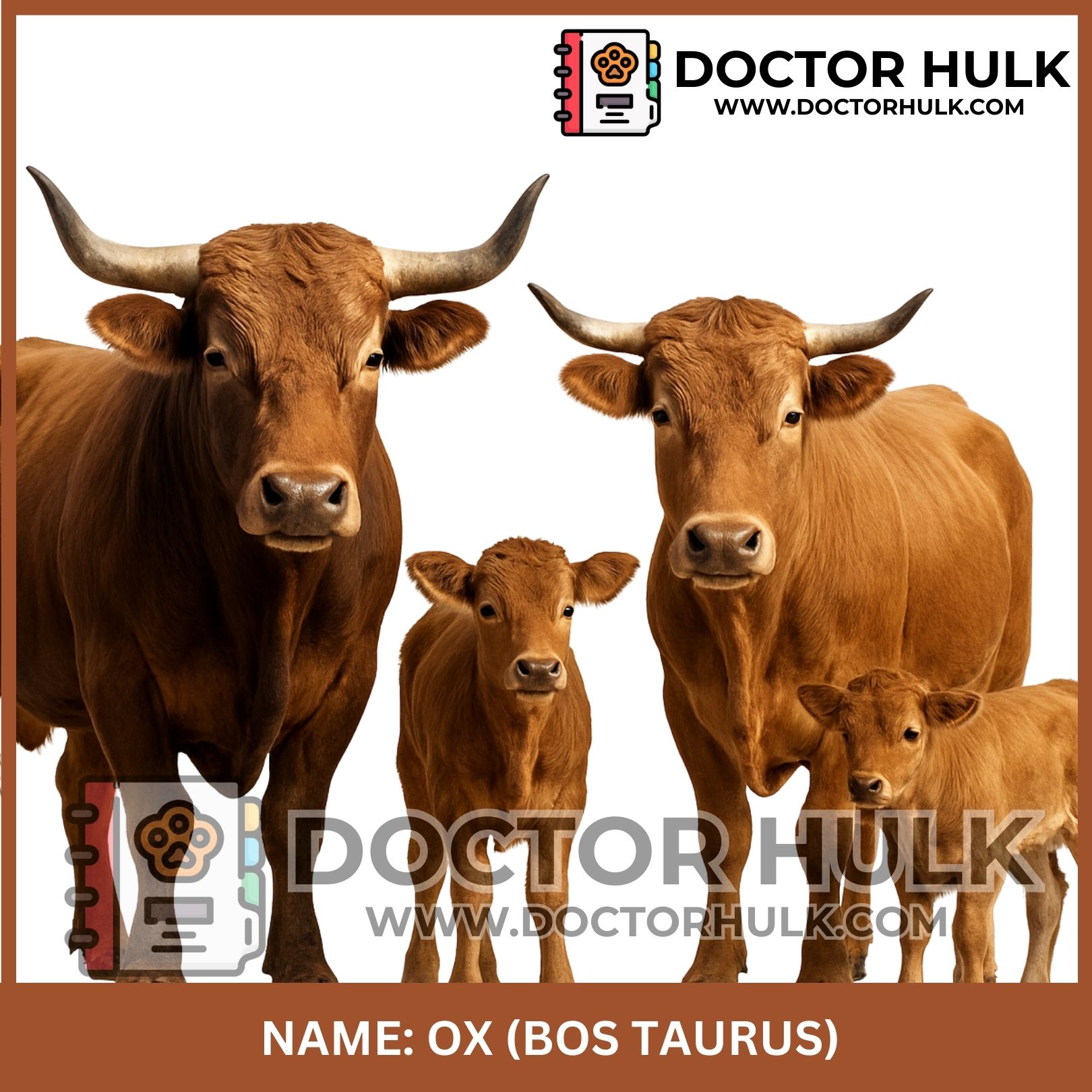The ox is a powerful and gentle giant. For centuries, oxen have helped humans with farming, transport, and heavy labor. Even today, in many parts of the world, oxen are still trusted partners on the farm.
Scientific Classification
-
Scientific Name: Bos taurus (domesticated cattle)
-
Family: Bovidae
-
Order: Artiodactyla (even-toed hoofed animals)
Common Names
-
Ox (singular) / Oxen (plural)
-
Bullock (used in some countries)
-
Draught cattle (because they pull loads)
Where are Oxen found?
Oxen are found all over the world, especially in:
-
Africa
-
Asia
-
South America
-
Rural parts of Europe
They are used on farms, in villages, and in places where machines are too expensive or unavailable.
What makes an Ox special?
An ox is not a different animal, it is a castrated male cow (bull) that has been trained to work.
-
Strong and hardworking
-
Calm and easy to control
-
Can pull ploughs, carts, and water wells
-
Usually starts working from age 4–5 and can serve up to 10–15 years.
 Image showing a pair of oxen pulling a cart on a road (Source: iStock)
Image showing a pair of oxen pulling a cart on a road (Source: iStock)
Difference Between Cow, Bull, and Ox
| Animal | Gender | Use |
|---|---|---|
| Cow | Female | Produces milk and calves |
| Bull | Male (not castrated) | Breeding |
| Ox | Male (castrated) | Work and transport |
Physical Features
-
Big and strong: Can weigh up to 1,000 kg
-
Muscular neck and shoulders
-
Thick hooves for walking on rough ground
-
Usually has a yoke (wooden beam) around its neck when working
 Image showing a close-up of a pair of oxen with a wooden yoke (Source: iStock)
Image showing a close-up of a pair of oxen with a wooden yoke (Source: iStock)
Fun facts about Oxen
-
Oxen work in pairs for better balance
-
They are very obedient once trained
-
In many cultures, oxen are a symbol of strength and patience
-
They can pull more than their own body weight.
-
Ox dung is used as manure and cooking fuel in rural areas
Veterinary care for Oxen
Because oxen work hard, they need proper health care.
Common health concerns:
-
Hoof problems (from walking long distances)
-
Muscle strain
-
Malnutrition (especially during dry seasons)
-
Tick-borne diseases
Tip: Give your ox regular checkups, deworming, and good food!
What do Oxen eat?
Oxen are herbivores. Their diet includes:
-
Grasses
-
Hay
-
Maize stalks
-
Crop leftovers
-
Clean water
A working ox needs extra energy, so feed them well before and after work.
Role in farming and human life
Oxen are the original tractors, they help:
-
Plough fields
-
Carry harvests
-
Pull carts to markets
-
Provide manure for crops
Even with modern machines, many farmers still prefer oxen because:
-
They are cheaper
-
They don’t need fuel
-
They help fertilize the land
Cultural and religious importance
In many countries like India, Nigeria, Ethiopia, and China, oxen are not just animals, they are part of tradition.
-
Used in weddings and festivals
-
Respected for their service
-
Featured in stories, dances, and rituals
Doctor Hulk Veterinary Hospital is here to keep your oxen strong, healthy, and happy. Reach out for deworming, hoof care, or nutrition advice. You can also call 08143397614.













Reviews
There are no reviews yet.